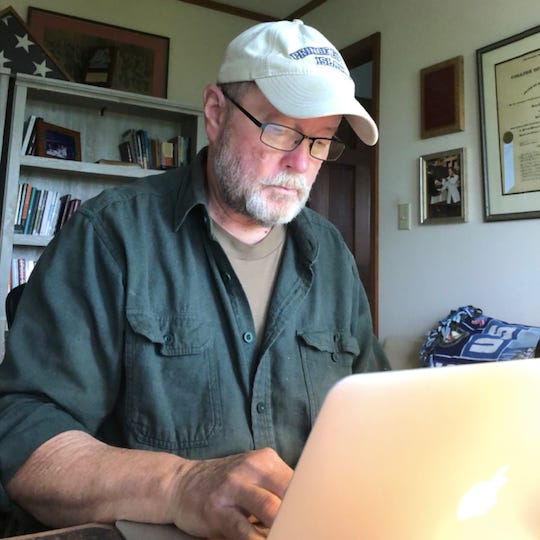The Process of Personal Transformation: The Foundation of Formal Education
A Solid Base To Build On

Everyone wants success, but few are willing to do what is required to be successful. Reading is one of those things. Reading is simple and it’s easy to do. The issue is that it is also easy not to do. - The Process of Personal Transformation, Part Two
It is interesting that over and over again in the Proverbs we are taught that Wisdom is more important than riches. Why?
The best explanation is that riches (business, career, investments, material possessions, health, etc) may disappear rather quickly. We have certainly seen this just recently in the devastating wake of Hurricane Helene in the Southeast Appalachian and Blue Ridge regions. Whole towns were washed away. Hundreds of families lost everything but the clothes on their backs. Tragically many have lost family members as well.
Knowledge and wisdom, however, gained throughout our lifetime remain. We can start over with a huge advantage without having to go through an extended learning curve.
The Role of Formal Education - A Foundation
Advantages
Formal education is a great start, but it is not enough. Formal Education can be summed up in four words:
It's only a foundation
What if we saw someone begin building a house, but stopped when the foundation was complete and moved in? Then they complained about the rain, the heat, the cold, and the lack of conveniences. We would think of them as crazy or fools.
Yet, that is exactly what most people do with education (and their lives). Once the foundation is done, they stop building and “move in” to their complacent and inadequate lives, then complain about how life’s not fair.
Schools (K-12 and higher) are the most obvious examples of formal education. Technical schools, Apprenticeships, and various types of skill training would also fall into this category. To varying degrees, most adults have at least the basic education required by law in our country today.
The goal of formal education should be to teach basic functional and social survival skills. As the old saying goes, “reading and writing and ‘rithmetic” is the basis for everything else in life. Therefore, it is doubly imperative that we design and pursue our learning path in life, based on that foundation.
At the college level, formal education generally takes a more focused role, allowing students to concentrate on areas that will take them into their career phase of life.
My personal belief is that except for professions that require some sort of certification or specific training for licensing, a formal college education is not that necessary for success in life.
Is that shocking to hear?
Please don’t misunderstand – I think everyone should pursue some sort of formal post-secondary education for many good reasons.
What I’m saying is that formal education has its place, but it shouldn’t be thought of as the end-all. There are many individuals, a few I know personally, who have become extremely successful in life (personally & financially) without ever stepping into a college classroom.
For many reasons, however, a college-level experience can be invaluable, especially for young people. It can help them -
• Transition from dependence to independence
• Discover their calling
• Develop self-discipline
• Learn how to make friends and interact with others from all walks of life
• Become confident in their abilities
• Internalize beliefs
• Find a soul mate
Sadly, college has become the end-all in our society. The typical trend for many today is to finish school, settle down, and go into a trance for the rest of your life.
Education gets checked off the bucket list of life, never to be actively pursued again.
There is a whole world waiting out there (mostly for free) which you can never learn in college.
TECHNOLOGY HAS CHANGED THE WAY WE LEARN
While formal education at the post-secondary level is much more expensive than informal education, depending on the goal, it may be the place some mid-lifers will have to start in their personal transformation process.
For those who do need to pursue a more formal education, the advantages in today’s information age & technological environment are huge.
First, the advantage of years in the marketplace.
Wisdom gained from experience is invaluable when making decisions for future pursuits.
It can be used not only for direction down the right path but also for steering clear of wrong paths and rabbit trails along the way.
Experience gives you a good sense of personal likes & dislikes, skills & abilities, and wisdom that can only come from time spent in the workplace.
Second, with the maturing of the Internet, there are a great number of career assessment tools and online personal education options.
These can help clarify and combine our Three P’s: Passion (desires, dreams, goals, and values), Potential (gifts, skills, and abilities), and Personality (God-given nature) to guide you in the right direction.
Third, there are career field programs leading to certifications and degrees at all levels, all online.
Most schools have online degree programs now. This allows those working full-time to pursue a self-paced program from home.
During this time, one can design and map out his own Personal Transformation Plan.
Online degree programs are more available, accessible, and affordable than ever. If formal education is the place you need to start, the only one holding you back is that person in the mirror.
Next week, we’ll look at what Informal Education is and ways to pursue it.
Thank you for subscribing to Life UnCorked where the focus is on successfully navigating the issues of life from a Christian point of view.
While you’re here, check out my creative writing ‘Stack: The Talking Pen, where you’ll find fiction & non-fiction stories, poetry, art, and personal musings that illustrate the struggles, tragedies, and triumphs of life.




